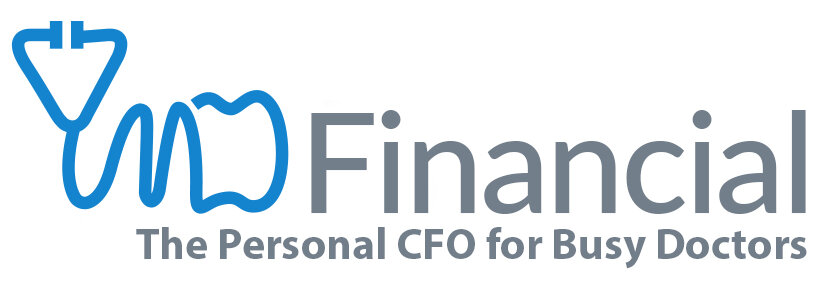By Katherine Vessenes, JD, CFP®
It is crucial for doctors to understand the differences in retirement accounts if they want to maximize their wealth. Two popular choices, the Sep IRA and the Solo 401K, present distinctive benefits, limitations, and considerations. Here, we break down the key elements of each, shedding light on their respective advantages and limitations.
Solo 401K: Leveraging Unique Contribution Strategies
The Solo 401K serves as an alluring option for doctors seeking robust retirement contributions and diversification opportunities. One of the standout benefits lies in the facilitation of a Backdoor Roth IRA conversion, effectively enabling the movement of funds into a tax-free zone, because, if done properly, all your pre-tax dollars could be converted to a Roth Account on an annual basis. This feature, called a Mega Backdoor Roth, is particularly valuable for doctors aiming to expand their tax-free/ Roth savings. However, as the account balances in the pre and post-tax accounts grow beyond $250,000, additional administrative requirements, such as the filing of the 5500 EZ form, come into play. This is a simple administrative form. Failure to file it, can result in onerous IRS penalties. Make sure your tax preparer is aware of the balances in your account so they can file the form every year.
Sep IRA: Simplified and Cost-Efficient Retirement Planning
Contrasting the Solo 401K, the Sep IRA offers simplicity and cost-effectiveness, making it an appealing choice for doctors desiring a straightforward approach to retirement planning. Absent the need for a third-party administrator (TPA), this option allows doctors to save on setup and ongoing fees, providing a streamlined experience. While it lacks some advanced contribution strategies of the Solo 401K, the Sep IRA accommodates regular contributions, making it suitable for variable income streams.
*The Secure Act 2.0 allows employers of SEP IRAs to offer the ability to now make Roth contributions.
Key Considerations and Limitations
Understanding the nuances and constraints of each retirement plan is vital for doctors aiming to make an informed decision. Solo 401K permits after-tax contributions and a catch-up provision for individuals over 50, while the Sep IRA remains restricted on catch-up provisions. Additionally, for doctors with employees, the requirement to match contributions for eligible employees poses a consideration worth noting when evaluating retirement planning options.
Expert Guidance for Tailored Retirement Solutions
Navigating the complexities of retirement planning often necessitates professional advice tailored to a doctor’s individual circumstances. At MD Financial, we can offer personalized insights and strategies to help doctors secure their financial future with confidence. With an emphasis on peace of mind and comprehensive financial wellness, our mission is to empower our clients to make informed decisions for their retirement and long-term financial security. In short, we want to save our doctors time and taxes, while increasing their wealth.
For doctors seeking comprehensive guidance on the selection and optimization of retirement plans, MD Financial Advisors are equipped to provide tailored solutions and advice. Reach out today for a personalized consultation or a second opinion and secure your financial future with peace of mind.
Listen on Apple Podcast, Google Podcast or Spotify
CONTACT US
1-888-256-6855
Remember that you can send us any questions at: Info@MDFinancialAdvisors.com
Katherine Vessenes, JD, CFP®, is the founder and CEO of MD Financial Advisors who serve 600 doctors from Hawaii to Cape Cod. An award-winning Financial Advisor, Attorney, Certified Financial Planner®, author and speaker, she is devoted to bringing ethical advice to physicians and dentists. She can be reached at Katherine@mdfinancialadvisors.com.
The views expressed are those of the author as of the date noted, are subject to change based on market and other various conditions. Material discussed is meant to provide general information and it is not to be construed as specific investment, tax, or legal advice. Keep in mind that current and historical facts may not be indicative of future results. The information contained in our presentations has been compiled from third-party sources and is believed to be reliable; however, accuracy is not guaranteed.

![Rich Doc. Broke Doc. Tax Shelters Rich Docs Use to Build Their Wealth Tax-Efficiently. [Podcast]](https://images.squarespace-cdn.com/content/v1/561feb4ee4b0de0eb30d6d3c/1698857463101-ZFDJVTYZATHSCDRHIMMF/Doctor+Adding+to+Piggy+Bank.jpg)

